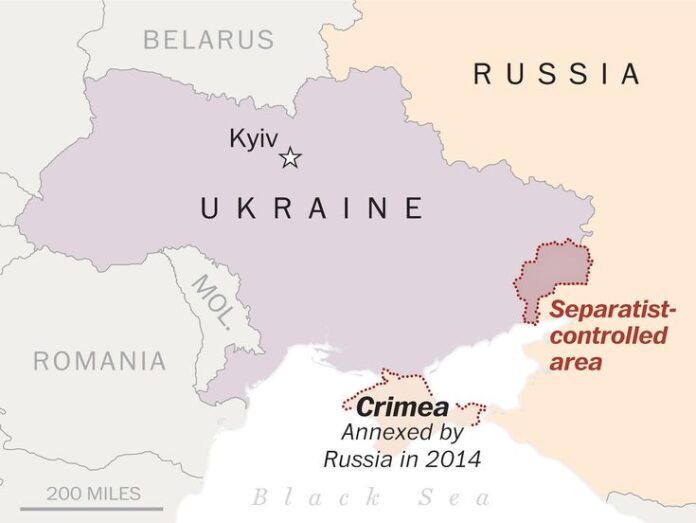Amid the tumultuous backdrop of Russia’s invasion of Ukraine, a complex and contentious dilemma confronts corporations with vested interests in Russia. The choices these companies make have profound implications, from financial considerations to the risk of reputational damage. In a world grappling with this moral and financial conundrum, we explore why some firms have chosen to remain in Russia, despite international pressure, while others have swiftly exited.
The Russia-Ukraine conflict, which began with the first airstrikes in February 2022, placed corporate executives operating in Russia in an unenviable position. Russia, with its substantial population of 145 million and a GDP of $2.24 trillion in 2022, represents a colossal business market. However, for companies deciding whether to stay or leave, the conflict presented not just financial dilemmas but also ethical and reputational challenges.
Swift Departures and the Reputational Risk: In the early days of the conflict, some corporations wasted no time in exiting Russia. British Petroleum (BP) notably withdrew from Russia just three days after hostilities commenced. BMW followed suit by announcing the suspension of Russian production and imports by March 1. Heineken initially declared its intention to leave Russia in March 2022, but it culminated in selling its Russian business to Arnest, a Russian packaging firm, at a substantial loss this August.
Estimates on the number of companies that have left Russia vary, with some suggesting around 300, while others assert that approximately a thousand have exited. However, a substantial number of foreign companies have opted to maintain their presence in Russia, despite the ongoing conflict and international scrutiny.
Financial Imperatives and Market Dependence: Financial considerations weigh heavily in the decisions of companies that continue operations in Russia. Ritter Sport, a family-owned German chocolate brand, illustrates this point. Despite pledging to cease investments and advertising in Russia, it continues to sell its products there, as Russia accounts for 7% of its overall revenue. For some companies, the financial stakes are too high to justify a complete withdrawal.
Furthermore, companies that remain in Russia may not experience the same level of reputational risk as their more high-profile counterparts. Smaller or lesser-known firms might find it easier to operate in Russia without attracting the same degree of international attention.
Operational Assets and Russian Legislation: For some companies, leaving Russia is a complex proposition, as it involves selling factories, warehouses, storefronts, and other assets within the country. Russian legislation adds another layer of complexity, making foreign corporate withdrawals challenging. A law passed by the Kremlin in late 2022 requires foreign companies seeking to sell assets to undergo evaluation by a Russian government agency, which may then value these assets at half the agency’s assessment. This financial burden has dissuaded some businesses from opting for a hasty exit.
The Risk of Asset Seizure and ‘Otzhim’: Companies that choose to stay in Russia must grapple with the potential for asset seizure by the Russian government, a practice known as “otzhim.” Russian authorities may appropriate assets to enrich themselves or their supporters, and this is not uncommon in the Russian business landscape.
Moral Grounds and Essential Services: Some corporations argue that remaining in Russia serves a moral purpose. Businesses providing essential food or medicine, such as AstraZeneca, contend that their presence is essential for patients who rely on life-saving medications. While these companies may suspend investments, they maintain their commitment to providing vital medical supplies.
Future Risks and Public Perception: The decision to stay in Russia amidst the Ukraine conflict may have long-term consequences, depending on public perception and investors’ appetite for risk. Companies that opt to remain could face asset seizures, expulsion from the country, or even the risk of their assets becoming casualties in an escalating war.
Global consumers have increasingly shown their willingness to support boycotts targeting firms that continue to operate in Russia. While these campaigns can generate negative attention, the financial implications for companies caught in scandals are typically short-lived. The outcome may resemble previous cases, where companies involved in controversial situations ultimately rebounded in the eyes of consumers.
Russia’s economic woes, exacerbated by international sanctions and condemnation, may further incentivize companies to reconsider their presence. While Russia boasts a sizable economy, it still lags behind major players like the US, China, and the European Union. Ultimately, Russia’s business environment may evolve into one characterized by isolation and limited foreign business engagement, mirroring North Korea’s situation, as foreign companies gradually depart.
As the Russia-Ukraine conflict unfolds, the decisions made by corporations operating in Russia will continue to be scrutinized from financial, ethical, and reputational perspectives. The complexities of this issue underscore the challenging terrain businesses navigate when geopolitical tensions intersect with their global operations.


